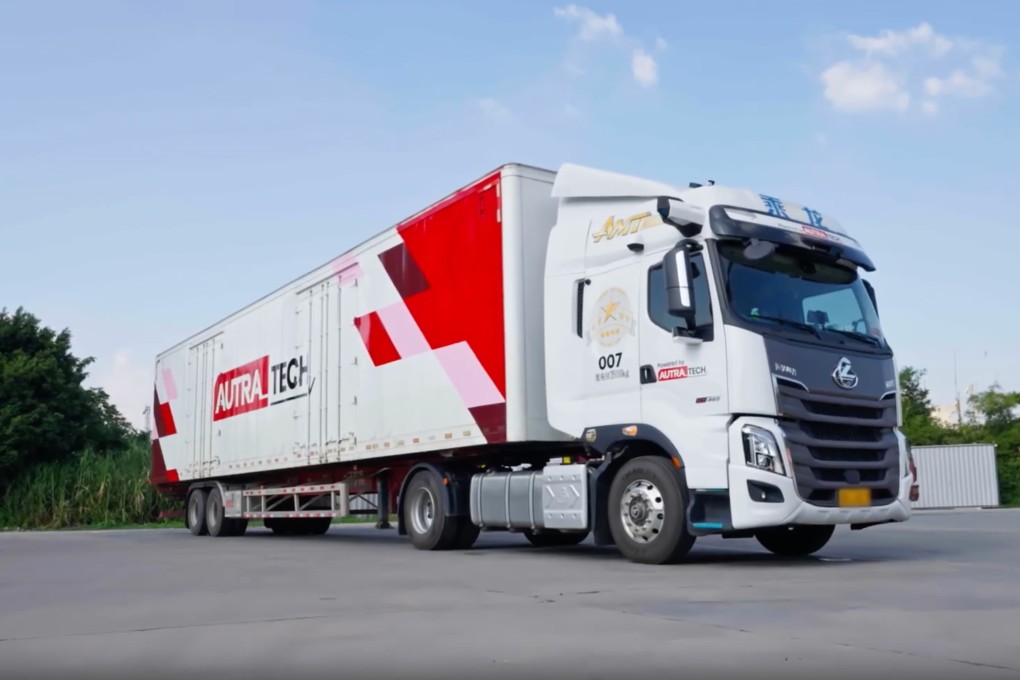Advertisement
Chinese self-driving truck start-up Autra.tech scales down operations amid cash crunch
Financing issues and potential US sanctions prompt Autra.tech to cut salaries of staff, cancel new development and suspend delivery orders
Reading Time:2 minutes
Why you can trust SCMP

Autonomous-driving truck start-up Autra.tech has scaled back its operations amid a cash crunch, according to local media reports, as the United States prepares to ban China-made software for connected vehicles.
Beijing-based Autra.tech’s current challenges in financing and tight cash flow cannot support its research and development plans, product outlay and operations, chief executive Fei Ding wrote in an internal letter to employees in September, according to a report this week by Chinese news outlet LatePost.
That has prompted the company to push a range of cost-reduction measures, including cutting all employees’ monthly salary to 10,000 yuan (US$1,408), cancelling the development of new vehicle models and suspending delivery of new orders, Ding wrote in the letter.
Advertisement
Autra.tech’s office in southern tech hub Shenzhen was vacated in the middle of October, while its workplace in Guangzhou had also become inactive, according to the LatePost report. Some employees at its Beijing headquarters already work from home.
Autra.tech did not immediately reply to a request for comment on Tuesday.

Autra.tech’s troubles reflect the persistent funding challenges many start-ups face in mainland China, as economic headwinds and the lack of an exit path continue to weigh down the country’s venture capital market.
Advertisement
Advertisement
Select Voice
Select Speed
1.00x